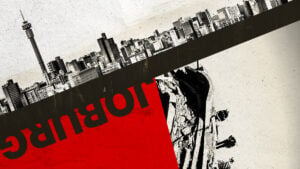Bad news for braai and steak lovers in South Africa

Anyone planning a braai this month will have to dig deeper into their pockets, as the latest South African Braai Index reveals a notable rise in food prices.
According to the index, the cost of a typical braai basket has increased by 4.0% compared to March 2025, and by 4.03% year-on-year from April 2024.
These increases outpace headline inflation, highlighting the growing cost pressures consumers face.
While prices remain below the record highs in recent years, the data points to a clear upward trend in 2025.
The Braai Index, originally developed by Bloomberg, is compiled monthly using pricing data from the Pietermaritzburg Equity Justice and Dignity (PMBEJD) group.
It tracks the prices of a selection of essential items typically used for a South African braai, offering a focused view of inflation at the grill.
This includes meat (beef, wors, chicken portions), vegetables (spinach, carrots, tomatoes, potatoes, onions, green pepper) and others (samp, maize, curry powder, salt).
In April, vegetables are largely to blame for the steeper costs, with tomatoes and carrots seeing particularly sharp price hikes of 26% and 20%, respectively, from March to April.
Over a longer timeframe, maize meal stands out as the most significant driver of cost increases, rising by 21% compared to April 2024.
The Bureau for Food and Agricultural Policy (BFAP) highlighted last month that maize prices have surged in 2025.
This is due to declining supplies in Brazil, worsening crop conditions in Argentina, and strong export demand for US maize from Japan, Mexico, and South Korea.
Domestically, South Africa’s maize prices have been pushed higher by low stock levels following poor 2024 harvests, strong demand from neighbouring countries, and uncertainty over the 2025 growing season due to a delayed start.
For now, the cost of a traditional South African braai continues to climb, which is another sign of the broader pressures on food prices in the country.
Month-on-month index change [+4.0%]

Year-on-year index change [+4.03%]

Meat prices
The Braai Index shows that beef prices are moving in the wrong direction following a 1.3% decline in prices observed in March, and experts have already warned that this is likely to continue.
Senior Agricultural Economist for Trade Research at the National Agricultural Marketing Council (NAMC), Thabile Nkunjana, said this is due to a shortage of slaughter-ready cattle.
Speaking on The Money Show, Nkunjana said that this shortage resulted from several key factors.
Feed costs have jumped due to unfavourable weather conditions. Heavy rains are affecting grain crops in parts of the country after drought conditions cut production last year.
“We usually see a decline in commercial livestock early in the year because farmers are coming from a higher slaughtering number for the festive season. But this is being exacerbated now,” He said.
He explained that grains are a key component of the sector, and the drought, coupled with heavy rains, has affected yields and therefore the price.
“The higher cost of feed will limit some of the farmers’ ability to bring their animals to abattoirs because they’re not ready for market.”
A Butcher told News24 that early in April, a beef carcass, which usually sells for R56 per kilogram, was being sold to butcheries for prices as high as R74 per kilogram, representing a 32% price hike.
Reassuringly, Red Meat Industry Services’ Dewald Olivier told Channel Africa that there isn’t actually a shortage of beef but “just a temporary tightening of supply”.
The BFAP added that the South African meat market has been mixed across the different types and cuts. Prices for poultry, for example, fell following international trends, supported by the exchange rate.
Pig and sheep meat prices—not tracked in the PMBEJD basket or the index—also experienced a slight uptick.
The BFAP said this reflected higher sheep meat prices globally and persistently high feed costs that affect intensive pork production.




















